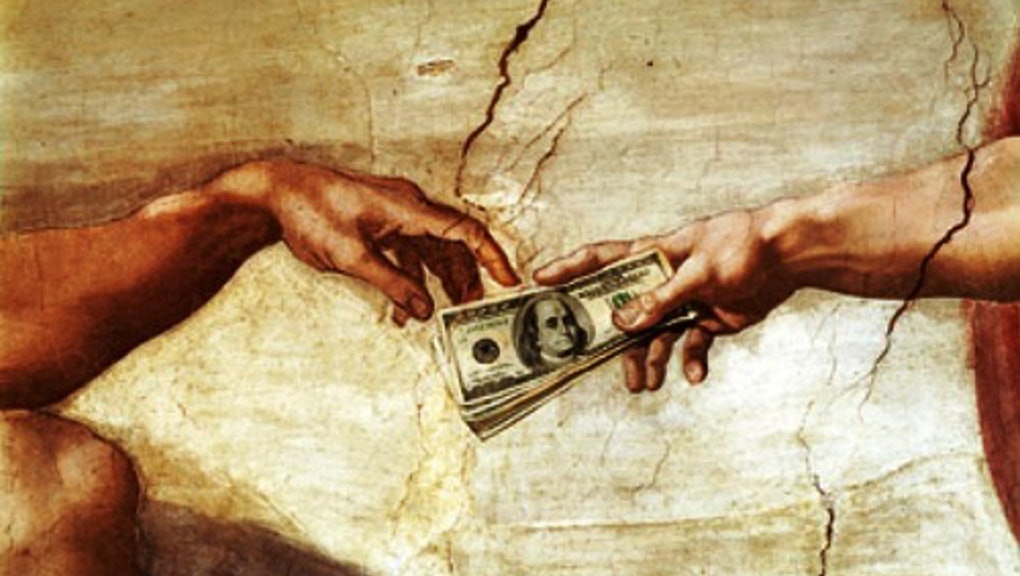
Many New Zealanders were surprised last week by reports that the Stuff news portal at www.stuff.co.nz was worth less than one dollar. How could it be possible that our foremost media portal, which employs hundreds of people, has a lower net value than a ramshackle outfit like VJM Publishing? This essay explains.
Stuff has a world Alexa rank in the top 4,000, and was ranked 7th in New Zealand at time of writing. They get hundreds of times more traffic than VJM Publishing does. They have been legitimised in most people’s minds as the “mainstream media” and, despite being shit, are considered to be “proper” journalism.
So how can they make less money? The simple answer comes down to who owns Stuff and what they have bought ownership for.
The VJM Publishing strategy is not to churn out vast numbers of shitty articles, with clickbait headlines, about vapid celebrities, in the hope of tricking some pleb into clicking on some more clickbait in the form of an advertisement.
No wonder advertising revenue is plummeting, if that is the business model.
VJM Publishing doesn’t make money from spamming Google ads through every page or by having banks of them at the bottom of every article like Stuff does. In fact, we don’t make any money from advertising revenue – we make it from selling books. Every page on this website has a set of links to our book sale pages on Amazon and TradeMe.
Making a living selling books is tough, but it’s possible. The trick is to produce material of a high enough quality that it promotes and advertises itself. This is the secret to ranking well in the Google algorithm, because that algorithm can estimate a page’s quality by measuring the responses of its readers. If the readers tend to click away quickly, it’s probably a low-quality page, and vice-versa.
This is a different business plan to that of Stuff, but we are in fact a publishing company, not an advertising seller (or reseller). As such, we compete on quality and not on volume.
This company operates under the logic that if we can provide quality articles about esoteric subjects and alternative psychology, as well as intelligent political commentary from an alt-centrist perspective, that this will give us an edge. As long as this edge leads people to become aware of our books, some people will buy them, and we make profits.
All of this sounds so obvious, that the question has to be asked: why doesn’t Stuff do similar?
The first thing is to look at who owns the New Zealand media: essentially it’s owned by international banking and finance interests. This was demonstrated by us here at VJM Publishing, in an example of the kind of journalism that the mainstream media will never give you.
These international banking and finance interests don’t care if they lose money from Stuff. They gain something of far, far greater value: control of the narrative. Thanks to having control of the narrative, they can normalise all kinds of things that are in their benefit. In principle, every article on Stuff has been calculated to suit the agenda of its owners.
By directing Stuff to constantly cry and scream about racism, those owners achieve several objectives.
The international banking and finance interests make enormous profits from mass immigration. Not only does every new immigrant push the price of housing up and generate one new mortgage account, but their cheaper labour also pushes the cost of running a business down. On top of all that, their presence destroys the solidarity of the host nation, making it easier to rule over. Win-win-win.
The major opponents to the mass importation of cheap labour are the native working class. They lose the most heavily as they don’t tend to own houses, and they tend to sell rather than hire labour. As such, the mainstream media makes a great effort to paint these people as ignorant bigots who oppose mass immigration out of nothing but pure hatred.
It has to be understood that the mainstream media stokes up hysteria about racism for money. Not only does it generate clicks and traffic, but it also normalises the idea that mass immigration is normal and that anyone objecting to it is evil. Multiculturalism destroys the ability of the host nation to resist the predations of the international banking and finance classes – and the latter know this intuitively.
By directing Stuff to fill space with crap about Meghan Markle, they also achieve several objectives.
Foremost of these are wasting people’s time and conscious awareness on shit. If the mainstream media informed people about issues that directly impacted their well-being, it would agitate them. This might lead to chaos, which is bad for business. Much better to have a passive population who can be milked for profits without protest.
The best thing for business is for the populace to be induced into maximum docility. Perfection would be a herd of consumers that only get excited when the next product is released. So the mainstream media is directed to fill their pages with fluff pieces about irrelevant people. Meghan Markle, who has no connection to New Zealand at all, is the ideal subject.
All of these objectives serve one greater meta-objective: to gain control over our minds. Whoever controls the mainstream media – otherwise known as the apparatus of propaganda – controls the minds of the people. They control what the people hear, what the people think, what the people consider normal. Effectively they control how the people react to every stimulus that is put before them.
It’s an enormous power, perhaps the archetypal modern expression of what Elementalists call silver magic.
In summary: the international banking and finance interests who own the mainstream media are happy to lose money from it as long as they gain control of the narrative, because this confers a great deal of power. The elites run Stuff as a loss-leader to capture the attention of the masses in the same way that supermarkets run chocolate specials as loss-leaders. The losses from it are written off against greater profits elsewhere.
VJM Publishing, by contrast, is run as an actual business, whose mission is to provide quality information, forecasting and analysis in exchange for money. As such, we have to maintain a net worth above zero.
*
If you enjoyed reading this essay, you can get a compilation of the Best VJMP Essays and Articles of 2019 from Amazon for Kindle or Amazon for CreateSpace (for international readers), or TradeMe (for Kiwis). A compilation of the Best VJMP Essays and Articles of 2018 and the Best VJMP Essays and Articles of 2017 are also available.
*
If you would like to support our work in other ways, please consider subscribing to our SubscribeStar fund. Even better, buy any one of our books!



